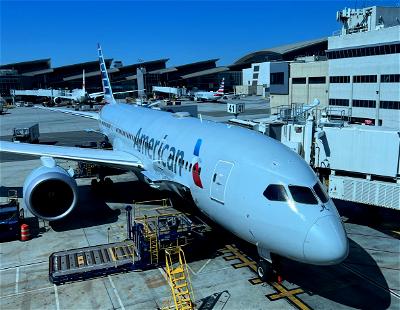I’m often asked by readers which credit card they should be using to maximize points for a given hotel stay, or if there’s an overall best hotel credit card.
Typically recommending which credit card is best for a particular bonus category (like dining, grocery stores, gas stations, everyday spending, etc.) is easy. That’s not really the case when recommending which credit card to use at hotels, though.
The added wrinkle with making this recommendation for stays at chain hotels is that you don’t just have to consider which credit cards broadly offer the best bonus categories for travel, but you also have to consider whether the hotel brand you’re staying at has a co-branded credit card that offers bonus points for stays at that specific brand.
In this post, I want to look at the most rewarding credit cards for hotel spending in general (regardless of the brand you’re staying at), and then compare that to the bonuses offered by specific co-branded hotel credit cards.
In this post:
The most rewarding cards for hotel spending
Broadly speaking, what are the most rewarding credit cards for hotel spending? For this section, I’m excluding co-branded hotel credit cards. That’s because I’m looking at the cards that offer the best bonuses on hotel spending in general, rather than the best bonuses for a particular brand of hotel.
So, which major rewards cards offer bonuses for hotel spending? Note that the rewards for spending are calculated based on my valuation of transferable points currencies, and I’m only including cards that are still open to new applicants.
1. Chase Sapphire Reserve®
Reward for hotel spending: 6.8% (4x points, which I value at 1.7 cents each)
Card annual fee: $795
Learn more about the Chase Sapphire Reserve, apply for the Chase Sapphire Reserve.
2. Wells Fargo Autograph Journey Card
Reward for hotel spending: 6.5% (5x points, which I value at 1.3 cents each)
Card annual fee: $95
Learn more about the Wells Fargo Autograph Journey, apply for the Wells Fargo Autograph Journey.
3. Ink Business Preferred® Credit Card
Reward for hotel spending: 5.1% (3x points, which I value at 1.7 cents each)
Card annual fee: $95
Things to be aware of: This is a business card, and the 3x points is limited to the first $150,000 in combined purchases in bonus categories each account anniversary year
Learn more about the Ink Business Preferred, apply for the Ink Business Preferred.
4. American Express® Green Card
Reward for hotel spending: 5.1% (3x points, which I value at 1.7 cents each)
Card annual fee: $150 (Rates & Fees)
Learn more about the Amex Green, apply for the Amex Green.
The information and associated card details on this page for the American Express Green Card has been collected independently by OMAAT and has not been reviewed or provided by the card issuer.
5. Citi Strata Premier® Card
Reward for hotel spending: 5.1% (3x points, which I value at 1.7 cents each)
Card annual fee: $95
Learn more about the Citi Strata Premier, apply for the Citi StrataPremier.
6. Chase Sapphire Preferred® Card
Reward for hotel spending: 3.4% (2x points, which I value at 1.7 cents each)
Card annual fee: $95
Learn more about the Sapphire Preferred, apply for the Sapphire Preferred.

The most rewarding co-branded cards for hotel spending
As you can see above, there are cards that offer anywhere from 2-5x points per dollar spent on hotels, with a return that I value at anywhere from 3.4% to 6.8%.
Can you get a better or worse return when using a co-branded hotel credit card? To be comprehensive, let’s look at the co-branded credit cards issued by Choice Privileges, Hilton Honors, IHG One Rewards, Marriott Bonvoy, World of Hyatt, and Wyndham Rewards. First let me share how much I value a point in each of these currencies (and of course let me emphasize that everyone should use their own valuation of points):
- Choice Privileges — 0.6 cents each
- Hilton Honors — 0.5 cents each
- IHG One Rewards — 0.5 cents each
- Marriott Bonvoy — 0.7 cents each
- World of Hyatt — 1.5 cents each
- Wyndham Rewards — 0.7 cents each
To keep things fairly simple, let’s look at the co-branded credit card(s) from each of the hotel groups that offers the highest return on hotel spending (keep in mind the main reason to get hotel credit cards could be for the elite status and free night certificates that they offer).
Choice Privileges
The Choice Privileges Select Mastercard offers 10x points on Choice spending, which I value at a return of 6%. This is quite good — it’s not quite as good as the rewards offered on the Chase Sapphire Reserve, by my valuation, but is otherwise very competitive.

Hilton Honors
The Hilton Honors American Express Aspire Card (review) offers 14x points on Hilton spending, which I value at a return of 7%. This is excellent, and beats the return on spending offered by all transferable points cards.
The information and associated card details on this page for the Hilton Honors American Express Aspire Card has been collected independently by OMAAT and has not been reviewed or provided by the card issuer.

IHG One Rewards
The IHG One Rewards Premier Credit Card (review) and IHG One Rewards Premier Business Credit Card (review) offer 10x points on IHG hotel spending, which I value at a return of 5%. This isn’t quite as good as the return on spending offered by some transferable points cards, though others may feel differently based on their valuation of points.

Marriott Bonvoy
The Marriott Bonvoy Brilliant® American Express® Card (review), Marriott Bonvoy Bevy® American Express® Card (review), and Marriott Bonvoy Business® American Express® Card (review), offer 6x points on Marriott hotel spending, which I value at a return of 4.2%. This isn’t as good as the return on spending offered by some transferable points cards.
That being said, some may wish to still use a Marriott co-branded credit card, since there aren’t many other ways to efficiently earn Bonvoy points. Furthermore, keep in mind that the Bonvoy Bevy Card offers 1,000 bonus points per eligible Marriott stay for cardmembers.

World of Hyatt
The World of Hyatt Credit Card (review) and World of Hyatt Business Credit Card (review) offer 4x points on Hyatt hotel spending, which I value at a return of 6%. While not quite as good as the return on spending offered by the Chase Sapphire Reserve, some may still wish to use on of these cards, due to the additional rewards of spending.

Wyndham Rewards
The Wyndham Earner Business Card (review) offers 8x points on Wyndham hotel spending, which I value at a return of 5.6%. This is good, but not quite as good as the return offered by the Chase Sapphire Reserve.

Crunching the numbers on hotel spending
Everyone will value points differently, and those with different points valuations may also come up with different conclusions. As you can see, based on my valuation:
- The Chase Sapphire Reserve offers up to a 6.8% return
- The Wells Fargo Autograph Journey offers up to a 6.5% return
- The Ink Business Preferred, American Express Green, and Citi Strata Premier, offer up to a 5.1% return
What’s surprising is that co-branded hotel credit cards largely don’t offer a better return for stays at their “own” hotels than some of these cards do.
Based on my valuation of hotel points, I’d argue that Hilton Honors is the only program where it generally makes sense to use a co-branded credit card rather than a transferable points card. I can also see merit to doing this with World of Hyatt, given the additional perks for spending, but it’s not some slam dunk.
The information and associated card details on this page for the Hilton Honors American Express Aspire Card and American Express Green Card has been collected independently by OMAAT and has not been reviewed or provided by the card issuer.

Other considerations with hotel spending
There are other potential considerations when deciding which card to use when staying at a hotel:
- The Chase Sapphire Reserve offers 8x points on hotels booked through Chase Travel; for some people that could be worth it, though you’re often forgoing points or elite benefits directly with a hotel group when booking this way
- Amex Fine Hotels + Resorts® offers extra perks for stays at certain hotels, and requires paying with an Amex card; you can even earn 5x points on these bookings when prepaying with The Platinum Card® from American Express (review)
- Often there are Amex Offers for discounts on hotel stays, which can make it worthwhile to use an Amex Card
- Often hotel credit cards have spending bonuses that could make them worth using, even if it leads to a slightly lower return on the points you earn:
- The World of Hyatt Credit Card makes it easy to earn elite status, as you receive two qualifying night credits toward your next tier status every time you spend $5,000 on your card, plus a second free night certificate when you spend $15,000 on the card in a year
- The Hilton Honors American Express Surpass® Card (review) offers a Hilton free night reward when you spend $15,000 on the card in a calendar year

Bottom line
In many cases, you’re actually not best off using a co-branded hotel card for your hotel spending, counterintuitive as it might be. Hilton and Hyatt have especially good co-branded hotel credit cards, where it can be worth spending money on their cards at hotels. Otherwise, you’re generally best off using a transferable points card for your hotel spending, with the Chase Sapphire Reserve nowadays being the most lucrative card.
What’s your go-to credit card for hotel spending?
The following links will direct you to the rates and fees for mentioned American Express Cards. These include: American Express® Green Card (Rates & Fees).





Tough for me to justify the Choice Hotel cards when the WF autograph cards transfer to Choice at a 1:2 ratio. So that 4x on the autograph journey could be 8x choice points (or 3x to 6x on the no AF version) while still having the other transfer partners available
Some of the hotel rates require a specific card to be used (e.g. Amex Business Card Rate). I think this needs to be updated in line with the new Chase redemption. Both Preferred and Reserve will mostly have the same value except for a limited list of redemption options. Furthermore, I do not agree with your percentages of value. I think it depends what you do with the points / how you redeem. I also...
Some of the hotel rates require a specific card to be used (e.g. Amex Business Card Rate). I think this needs to be updated in line with the new Chase redemption. Both Preferred and Reserve will mostly have the same value except for a limited list of redemption options. Furthermore, I do not agree with your percentages of value. I think it depends what you do with the points / how you redeem. I also think if you frequent a particular hotel group there are other benefits of having their credit card that make it valuable so the extra points you earn from the transaction contribute as one of the benefits.
In order for the comparison to be comprehensive, you would also have to evaluate the various free night certificates that come with the hotel cards, and the annual fees of the cards.
Chase has a couple of Marriott cards, including the Marriott Bonvoy® Boundless Credit Card and the Marriott Bonvoy® Premier
Plus Business Credit Card. Should they not be evaluated somewhere in the mix?
Both of those cards earn the same six Marriott points per dollar (before elite status bonuses) on Marriott stays as the Amex cards do.
Good a post overall, but I really would like a second "easy use" valuation for the transferrable points currencies for all points valuation articles. For those of us who don't plan to use our points to fly international business class with a secondary or middle eastern airline, transferrable points aren't worth nearly what OMAAT and other points sites claim they are. Maybe a "jump through hoops international business class" valuation and an "easy redeem valuation"...
Good a post overall, but I really would like a second "easy use" valuation for the transferrable points currencies for all points valuation articles. For those of us who don't plan to use our points to fly international business class with a secondary or middle eastern airline, transferrable points aren't worth nearly what OMAAT and other points sites claim they are. Maybe a "jump through hoops international business class" valuation and an "easy redeem valuation" like simply using the points for their highest valuation with the issuer or transferring them for easy use like to hotel brands.
My main quibble with your analysis is on the economics of using Hilton cobranded Aspire card at Hilton hotels. A Hilton point generally isn't worth 0.5 cents by a not-insignificant amount, so I'd say, other than at Hyatt hotels, none of the cobranded hotel cards is worth using, unless you need to accumulate hotel status points to reach your status level with the hotel chain.
What drives your high valuation of ultimate rewards? I would say Hyatt is one of the most valuable transfer partners and both the chase sapphire reserve and Hyatt cards earn 4x
Other options:
Citi Custom Cash 5x. Based on the above valuation of 1.7 cents/point, this would be 8.5% return. The 5x earn is up to $500 per billing cycle, but front desk usually allows you to split payments. Also foreign transaction fees.
Venture X and Citi Premier both offer 10x for hotels booked through their portal. Both have similar programs to FHR, though IME not as many options. With VX you can combine...
Other options:
Citi Custom Cash 5x. Based on the above valuation of 1.7 cents/point, this would be 8.5% return. The 5x earn is up to $500 per billing cycle, but front desk usually allows you to split payments. Also foreign transaction fees.
Venture X and Citi Premier both offer 10x for hotels booked through their portal. Both have similar programs to FHR, though IME not as many options. With VX you can combine with the $300 annual credit. And Citi Premier has an annual benefit of $100 off of $500 spent on a hotel through the portal.
If you have any status with AA and any credit card with AA, the AAdvantage Hotels portal can be a great deal. With the Citi AAdvantage Executive Card you earn 10x points (1x base/LP and 9x bonus) on the $ amount spent. Then each hotel offers its own set of additional miles, which are elevated offerings based on if you have any status or any credit card with AA. Sometimes portal pricing is way too...
If you have any status with AA and any credit card with AA, the AAdvantage Hotels portal can be a great deal. With the Citi AAdvantage Executive Card you earn 10x points (1x base/LP and 9x bonus) on the $ amount spent. Then each hotel offers its own set of additional miles, which are elevated offerings based on if you have any status or any credit card with AA. Sometimes portal pricing is way too inflated and I'll book direct (not just an issue with AA's portal of course). Sometimes it's basically equivalent (or within, say, $10-20) and you can get a significant amount of additional AA base miles/LP. Plus you may get a 20% or 30% LP bonus if you have earned 60k or 100k LPs with AA in the last 6 months.
Here's an example from an upcoming stay I have (rounded the #s) in a major European capital at a luxury hotel not associated with a major chain.
Rate is ~$500 for flexible rate/breakfast included (was same price as if booking direct) + 10,000 base miles.
So I get 5,000 miles from the AA Executive Card ($500x10) plus 10,000 extra base miles from the booking. I'm currently in the 20% LP bonus so I'll get 12,000 LPs (120% of the 10,000 base miles from the booking) plus an additional 500 LPs from the credit card spend (at $1/base mile/LP). All in that's 15,000 miles plus 12,500 LPs on a $500 booking.
That's 30 miles per $, plus LPs. And they are AA miles which, yes, are not as flexible as MR or UR but are still valued by this site at 1.5 cpp or $225 in value. For purposes of this example, can value the LPs at $0 (although obviously valuable if chasing status).
Let's say I booked the same through the Chase portal and got 8x points - that's 4,000 UR points or $68 in value. Or the Citi portal and got 10x points - that's 5,000 TY points or $85 in value. Doesn't come close, and that's without even considering AA status.
Is every deal "this good"? Nope. And if you value staying with major chains (I do not) or perks with major chains (have status through credit cards, I don't value the perks at all), then AA Hotels may not be for you. But if you are a casual traveler staying ~15-20 nights a year in places where you want to stay and are not loyal to a major chain, the AA Hotels program can offer some incredible value.
I totally agree with this and use the AAdvantagehotels.com portal and pay with the AA Citi exec card every chance I get. Using this method returns are typically 20-30x miles per dollar spent on the hotel, plus the loyalty points earned of course. There is simply nothing else giving even close to as good as a return on hotel spend when you are getting back nearly 50% of the hotel price kicked back as AA miles.